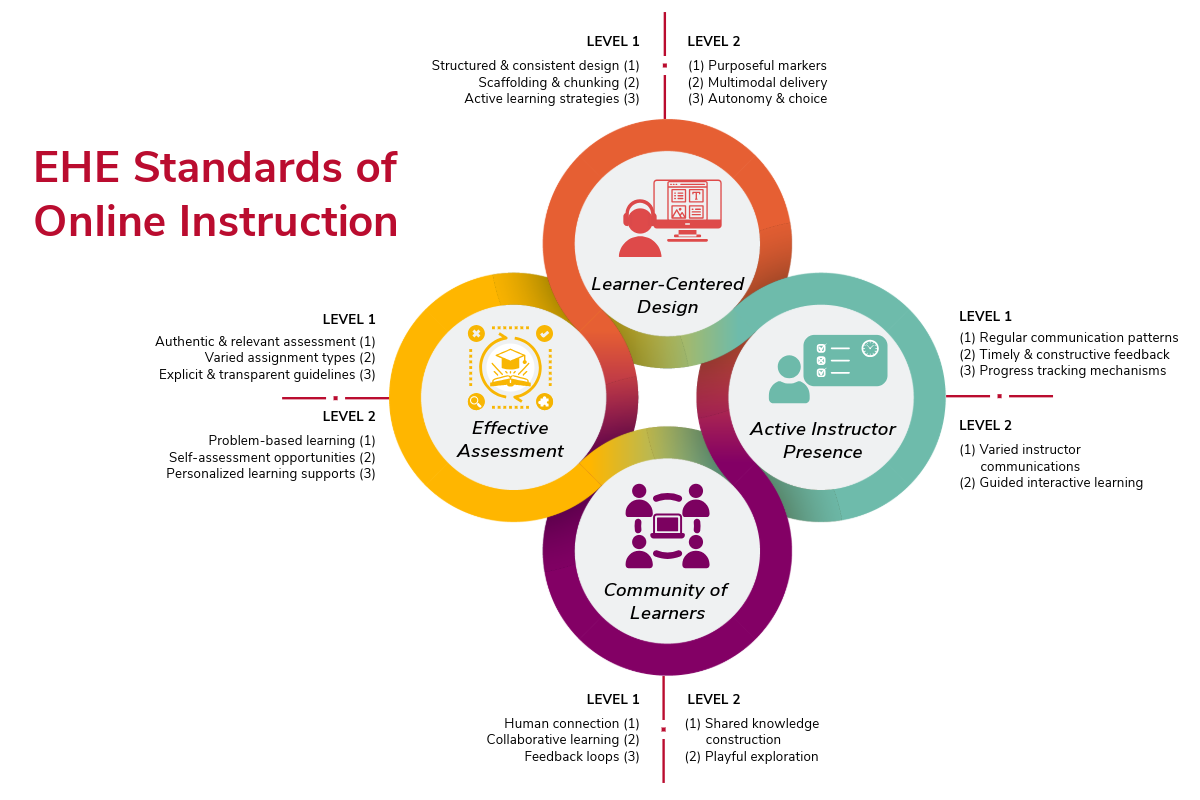The Framework
Developed and researched by the Center for Digital Learning and Innovation (CDLI), the EHE Standards of Online Instruction provide a framework of best practices designed to guide the creation of high-quality and engaging online learning experiences. It focuses on key elements proven to enhance student success and satisfaction in online environments by addressing learner-centered design, active instructor presence, the development of a community of learners, and effective assessment strategies, these standards help educators create online courses that are not only informative but also supportive, interactive, and ultimately more impactful for students.

The Four Standards
Explore each of the standards to discover key elements for creating effective and engaging online learning experiences. Click on the icons below to delve deeper into each standard and learn more about the best practices for Learner-Centered Design, Active Instructor Presence, Community of Learners, and Effective Assessment.

Learner-Centered Design
Online courses are designed to be engaging, well-organized, easy to navigate, and support student learning through consistent structure, scaffolding, active learning, and choice.

Active Instructor Presence
Instructor is actively involved in the course by communicating regularly, giving feedback, and guiding students.

Community of Learners
Develop a sense of community and social presence among students through human connection, collaborative learning, feedback, shared knowledge construction, and playful exploration.

Effective Assessment
Evaluate learning and support student success through authentic assessments, varied question types, clear guidelines, problem-based learning, self-assessment, and personalized supports.
